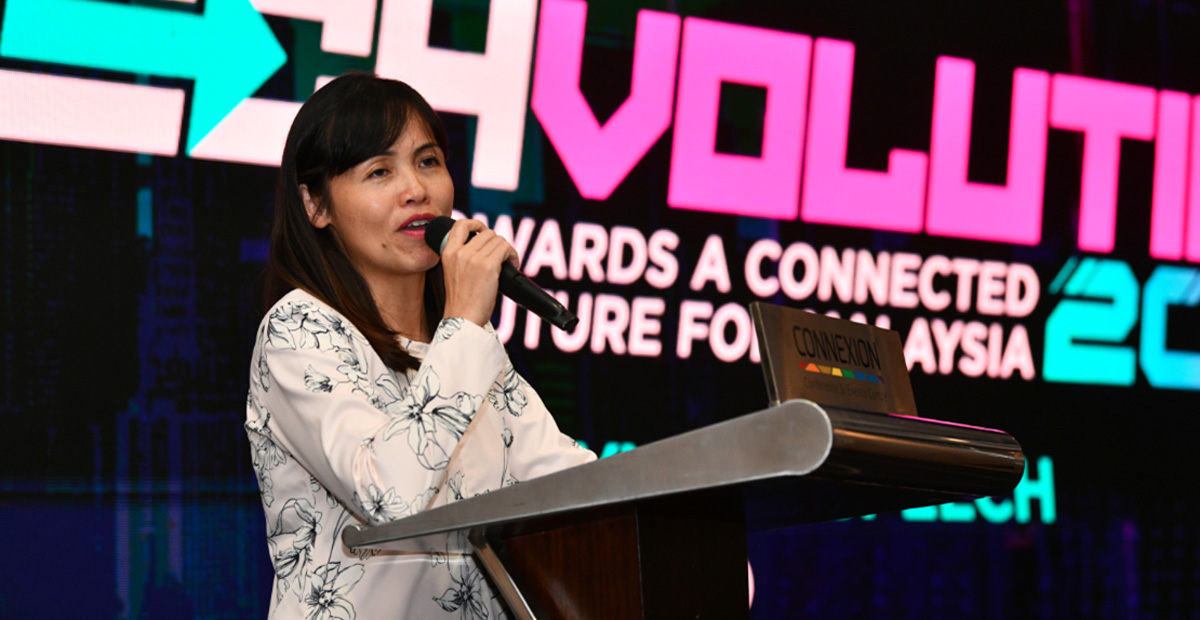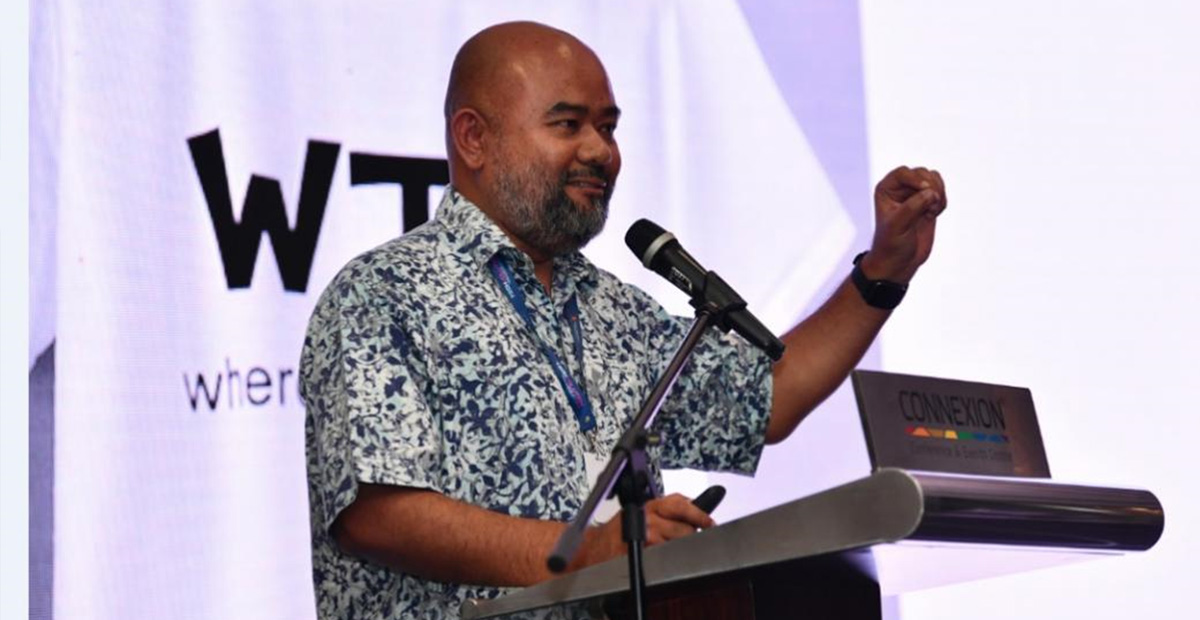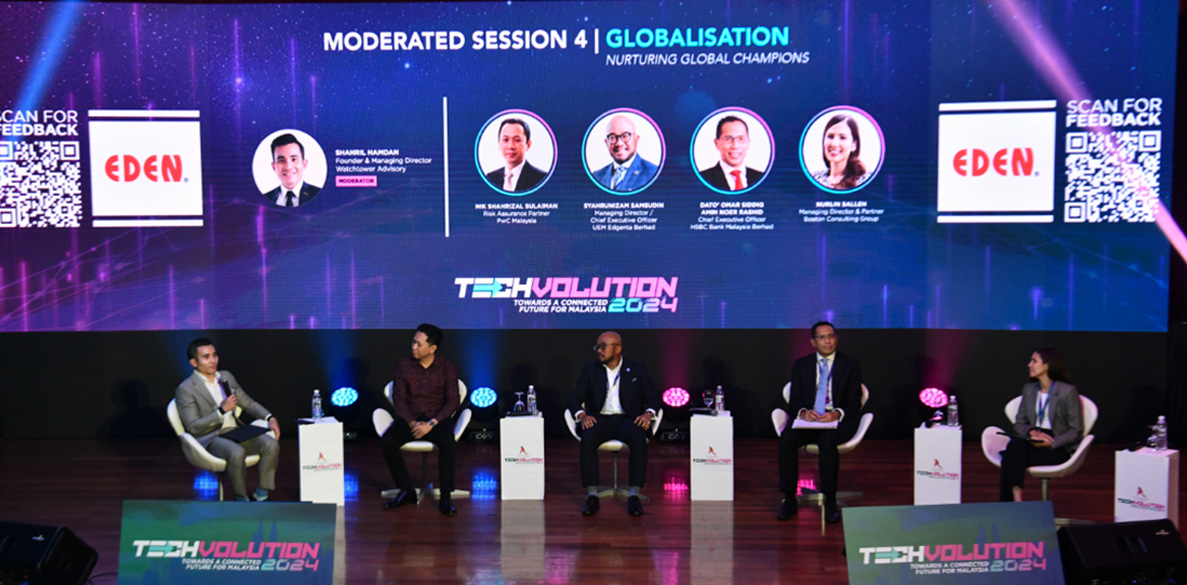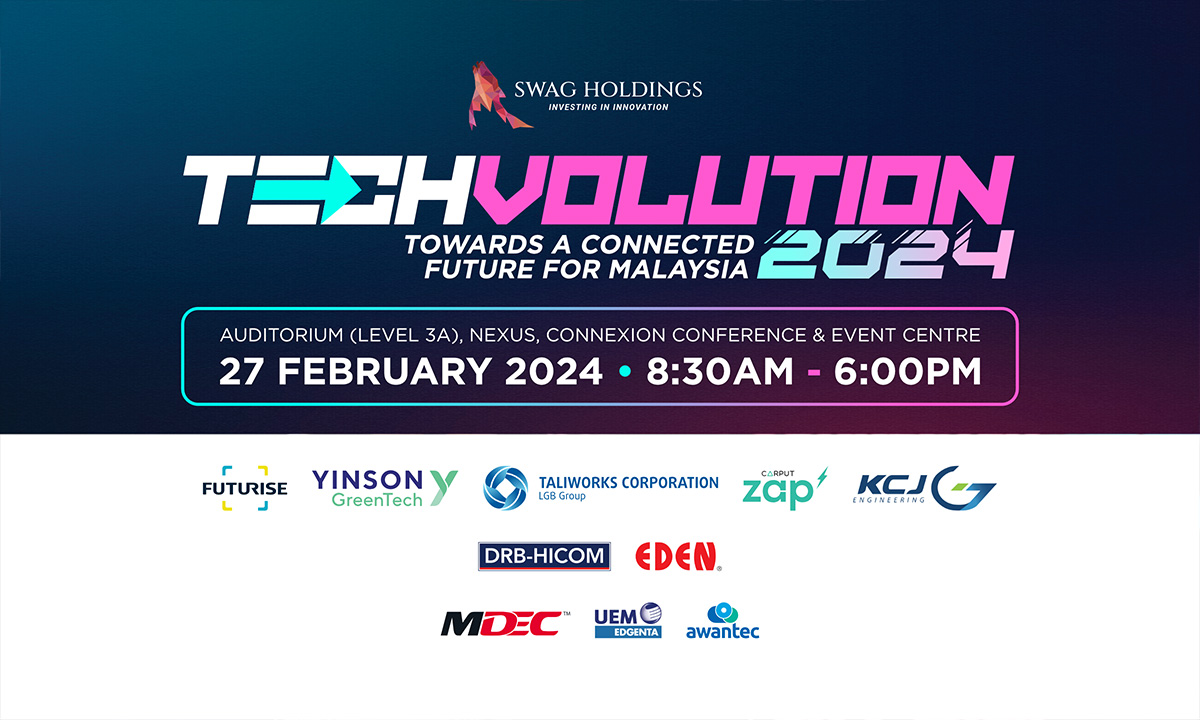Malaysia's Techvolution: Growing its digital ambitions

The progress of Malaysia's technological goals, the digitalisation of its economy and its four key missions were the highlights of Techvolution 2024. The conference, organised by SWAG Holdings Sdn Bhd and held on Feb 27, brought together tech players from all industries to discuss the country's key tech goals. Techvolution is an inaugural event for SWAG Holdings, which is a diverse group of companies across various industries.
Kicking off the event, chief executive officer of SWAG Holdings, Tengku Datuk Haji Zuhri Tengku Abdul Aziz focused on the importance of collaboration in driving innovation and transformation. Recognising the rapid growth of technology and its role in shaping the future, Techvolution was conceptualised from the multi-industry subsidiaries under SWAG Holdings' wing.
"Each of these pillars represents innovation and opportunity, driving sustainable development and economic growth," echoes Tengku Datuk Haji Zuhri Tengku Abdul Aziz.
Also highlighting the partners for Techvolution, Tengku Datuk Haji Zuhri called for more collaboration between industry players and government agencies, building bridges and removing the gap to unlock the full potential of technology which will ultimately impact the industries.
Before launching Techvolution, Ministry of Investment, Trade and Industry deputy secretary general for management and investment Datuk Bahria Mohd Tamil also shared a few insights and updates during her keynote speech on the current policy direction and initiatives of the 12th Malaysia Plan (2021-2025) to make Malaysia the regional leader in the digital economy.
She added that since last year, the government has been focusing on four "moonshot missions" as part of the New Industrial Master Plan (NIMP) 2030, with the goal of increasing economic complexity, encouraging the rapid embrace of technology and pushing for net zero as well as ensuring economic security and inclusivity.
Those four missions - electric vehicles (EVs), artificial intelligence (AI), creative economy, and globalisation and free trade agreements - are part of Malaysia's digitalisation journey, meant to ensure that our domestic industries and companies can face key global challenges and build resilience., which is in line with SWAG Holdings' focus on Techvolution.
When it comes to Malaysia's progress on EV adoption, Bahria noted there has been an increase in new registered battery EVs, with more than 13,000 units, which she remarked is "400% higher than those registered in 2022", attributing it to the indirect tax exemption offered by the government.
With AI being part of enabling technologies promoted and targeted through the NIMP 2030, Bahria affirmed plans to "leverage on the AI revolution, including by targeting to create 3,000 smart factories by 2030; or by harnessing the strength of our semiconductor industry to attract more AI-driven investment" and utilising AI itself to enhance public service productivity, such as data analysis and decision-making, echoing Tengku Datuk Haji Zuhri's speech..
When it comes to the creative economy, Bahria noted that the creative industry's current global market size is estimated to be worth US$298 million, which is forecast to reach US$519.6 million by 2028.
Finally, in terms of globalisation, Bahria believes globalisation is "still the main grease that oils various countries' growth engines".
Growing Malaysia's creative economy

During the lunch and networking session of the conference, Irwan Junaidy, co-founder and chief creative officer of The R&D Studio, took to the stage to share his company's history, its portfolio and its impact on Malaysia's creative economy.
Opened in 2012, The R&D Studio is also part of SWAG Holdings' multi-industry subsidiaries. The R&D Studio works in both live-action and animation, as well as interactive media with all sorts of broadcasters. The content development company is currently working on a full-length animated film based on its award-winning short Batik Girl, bringing in local talent and Malaysian culture to make the production truly stand out in the global market. It is being co-written by Malaysian screenwriter Renee Pillai, who is also an Academy Nicholl Fellowships winner, with a release window of 2027.
Meanwhile, Radiobot, set to be filmed after Hari Raya and slated for release between end-2024 and the first quarter of 2025, is a shorter-term feature inspired by Steven Spielberg's 1982 classic science fiction film, ET.
"We managed to secure a RM 10million investment from foreign entities," said Irwan, "[but] we're short about RM5 million [in investments to commit to a] three-slate film release, [which means] going for three films: Radiobot, something in the middle which we haven't figured out yet, and the Batik Girl movie."

Lunch was followed by a speech from deputy minister of communications Teo Nie Ching, who thanked SWAG Holdings for hosting the Techvolution event while acknowledging its importance at a time when the digital revolution is rapidly changing the technological landscape.
"It is through these partnerships that we can harness the full potential of technology to address societal challenges, drive economic growth and foster sustainable development," said Teo.
Because of how rapidly evolving the landscape is, Teo announced that the Ministry of Communications is "currently working to find solutions to help industry players streamline their processes and ensure better protection".
"Understanding the struggle, we need to come up with new strategies to support our future, especially considering the uncertain outlook for industry players," Teo said, as it is part of their responsibility as guardians of the creative economy.
Malaysia's place in globalisation

The full-day conference ended with a session on "Monitoring Global Champions", which discussed Malaysia's place in globalisation today as compared to around three years ago, when trade protectionism and talk of deglobalisation became popular, and patterns of gross domestic profits and foreign direct investment flow were falling.
HSBC Bank Malaysia CEO Datuk Omar Siddiq Amin Noer Rashid noted that while countries like the US have been pushing for deglobalisation to benefit their people more, this has led to a suboptimal state of production as the country now has to produce goods it is not abundant in or where labour is more expensive. "From my perspective, the path is clear. We should continue to pursue globalisation," said Omar, who reasons that it was because of globalisation that Malaysia reached the top 40 in the world in terms of gross domestic product.
"We punch way above our weight because of our ability to trade … If we take away globalisation, countries like us emerging economies will, I think, definitely suffer for it."
PwC Malaysia risk assurance partner Nik Shahrizal Sulaiman addressed the issue of globalisation within the context of regulations. He shared that there has been a trend towards regulatory convergence across the globe, covering various areas from banking regulations to financial reporting and sustainability. "I think traditionally when we talk about globalisation, the narrative has typically been driven by economic efficiency and cost of production, and which part of the world offers the best value in the context of the global supply chain."
However, given the current geopolitical trends, the issues of economic protectionism and decoupling have increasingly taken a bigger narrative in the topic of globalisation. This will create a new paradigm where the global supply chain and investments will evolve towards this new reality.
"As a country, Malaysia has to be agile to maintain our competitive advantage. I think from the perspective of our country's geopolitical strategy, we have always chosen the path of neutrality, and I think that approach should continue," said Nik Shahrizal. "We also have to be adept at identifying the pockets of opportunity in the new economic paradigm."
This need to adapt, especially by businesses, was further emphasised by the managing director and CEO of UEM Edgenta Bhd, Syahrunizam Samsudin, who sees a balance between globalisation and making use of protectionism regulations to the advantage of Malaysian businesses overseas. "Supply chains are inherently local, markets are inherently global," said Syahrunizam, "and in the middle of the Venn diagram, you have an opportunity to determine, as an organisation, how you build a supply chain that meets global markets."
Syahrunizam noted that Malaysian talent is robust, resilient and adaptable, which his company has taken full advantage of.
Going to foreign markets with similar policies that Malaysians are used to while also accepting foreign workers, establishing a presence and building a strong supply chain using local knowledge - this is how Syahrunizam finds middle ground in keeping Malaysia as a global player.
The content is a snapshot from Publisher. Refer to the original content for accurate info. Contact us for any changes.
Related Stocks
| EDGENTA | 0.910 |
Comments
